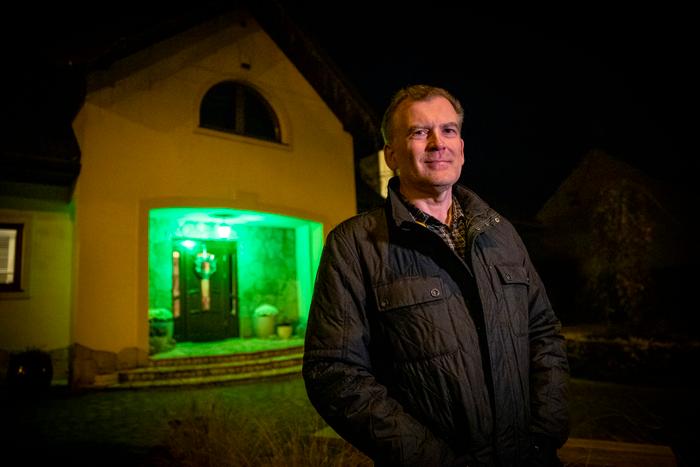Post by pieter on Jan 25, 2022 17:05:23 GMT -7

State of emergency still prevails on the border between Poland and Belarus

Charlotte Waaijers
correspondent Germany
Part of Poland on the border with Belarus is still protected from outsiders, so it is not clear what happens to migrants there. Rules that apply in the rest of the European Union have been suspended.
Originally because Poland would not be able to cope with the influx of migrants otherwise. But now the number of people trying to cross the border here has dwindled. Yet the EU does not intervene, much to the frustration of Poland in the area.
Normally, Białowieża, a World Heritage-listed village, has to rely on tourists who come to see the old wooden houses. Nature lovers head into the old-growth forest to spot birds and bison.
But at the tourist office on the edge of the forest it is empty. "People do come", the employee says cautiously, but they are "a different kind of tourists".
For months it has been the military and border police who have come to the tourist office to ask for tips and brochures. Apart from a handful of residents, nobody else is wel.
Jogging
Joanna Łapińska lives there and mainly sees armored vehicles, tanks and helicopters in her village. "The atmosphere is like a war movie," she says. She drove out of the area for the interview. She thinks the most bizarre are the soldiers jogging through the streets. "How can you jog in the midst of a humanitarian crisis? While people are freezing in the forest?"
Those people are the migrants who are trying to enter the European Union here in Poland via Belarus. It is difficult to give reliable figures of how many people try that. At the lowest point last summer, the Polish authorities reported that they were detaining about a hundred people every day. By now it would be several dozen.

President of the association Locals for Forest Joanna Łapińska poses for a picture on the road in Budy near Teremiski, Eastern Poland, on October 1, 2021. (Photo by Wojtek RADWANSKI / AFP)
Opposite those dozens of people, there are 15,000 soldiers next to the border police along the border. "Absurd," said Łapińska.
However, according to a spokesman for the border police, the zone is still needed. "Although there are fewer migrants, the situation is still not normal," said Anna Michalska. She speaks of provocations, as a result of which the zone must remain protected.
During the conversation with Łapińska, we (the Dutch journalists there) receive a message from an aid organization that assists migrants. They found someone in the woods ahead.
In the dark in the snow, wrapped in thick winter clothes, stands 31-year-old Syrian Moussa. He holds up a piece of paper: 'I want asylum in Poland', I want asylum in Poland.
He says he has been wandering in the woods for three months. He has tried ten times to apply for asylum in Poland, but each time the Polish police sent him back. That is not allowed, according to EU rules. Everyone has the right to apply for asylum and then await a decision within EU borders[/font.
And yet there are many migrants with stories like Moussa's. Aid organizations and journalists can hardly show that it is happening, because they are officially not allowed to enter the area. It is known that people have already died in the zone. How much exactly is impossible to say.
It is hardly surprising to Łapińska that the Polish government is violating European rights and rules. "We know that this is a country that is currently drifting in an unknown direction," she says, referring to, for example, the judiciary that is becoming less independent and the free media that is being pressured by the government.
She is disappointed in the EU. If Poland violates human rights or European laws, at least we can normally rely on the EU, she says. "In this case, Europe is behaving outrageously."
You don't want to see what's happening here, kids sitting in the woods here, families falling apart.
Marek Nazarko, Mayor of Michalowo

Marek Nazarko, Mayor of Michalowo
That is also the opinion of Marek Nazarko, mayor of Michalowo, a little further away just outside the zone. He likes to see himself as a go-getter. A proverb hangs on the wall behind his desk: 'Those who want to work find a way. Those who don't want to work, look for an excuse'.
According to him, the EU is letting Poland do the dirty work. "From your perspective, the eastern border is shrouded in mist and you don't want to go into that fog. You don't want to see what's happening here, that kids are in the woods here, families are falling apart. But we see it, because we live in this fog ."
Spring
How long Poland can maintain this state of emergency remains unclear. Just like what the tourists will find when they are welcome again, and the snow has melted.
"Everyone is talking about the fact that in the spring people go back into the forest more often. To watch birds and God knows what," says Lapinska. "I don't hope people will find bodies torn apart by wild animals. But I'm not under any illusions."
The Syrian Moussa will be allowed to await his asylum procedure in Poland this time. The aid organization in the forest has helped him with an interim: a registration within the EU so that the Polish border police cannot send him back unseen.

